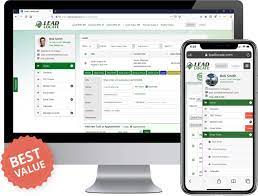Maximizing Profitability: Leveraging Essential Dealer Business Tools for Success

The Essential Dealer Business Tools Every Automotive Professional Needs
Running a successful dealership in today’s competitive automotive market requires more than just having a great inventory of cars. To stay ahead of the curve and maximize profits, dealers need to leverage the right business tools and technology. These tools not only streamline operations but also enhance customer experience and drive sales.
Inventory Management Software
An efficient inventory management system is crucial for keeping track of vehicles, managing pricing, and optimizing stocking levels. With the right software, dealers can easily update listings across multiple platforms, monitor vehicle performance, and make data-driven decisions to improve profitability.
Customer Relationship Management (CRM) System
A CRM system helps dealerships build and maintain strong relationships with customers. By tracking interactions, managing leads, and sending personalized communications, dealers can enhance customer satisfaction and loyalty. CRM tools also provide valuable insights into customer preferences and buying behavior.
Digital Marketing Platforms
In today’s digital age, online visibility is key to attracting customers. Digital marketing tools such as social media management platforms, email marketing software, and search engine optimization (SEO) tools help dealerships reach a wider audience, drive website traffic, and generate leads.
Finance & Insurance (F&I) Tools
F&I tools streamline the financing process for customers while maximizing profit margins for dealerships. From electronic contracting systems to compliance management software, these tools simplify paperwork, ensure regulatory compliance, and offer upsell opportunities for additional products and services.
Analytics & Reporting Tools
Data-driven insights are essential for making informed business decisions. Analytics tools allow dealers to track key performance indicators (KPIs), measure marketing ROI, analyze sales trends, and forecast future demand. By leveraging analytics tools, dealerships can identify areas for improvement and optimize operations.
Investing in the right dealer business tools is not just a choice but a necessity for staying competitive in the automotive industry. By embracing technology and innovation, dealers can enhance efficiency, boost sales performance, and deliver exceptional customer experiences that set them apart from the competition.
Key Dealer Business Tools Explained: Controllers, CRMs, Inventory Systems, and Management Systems
- What is a dealer controller?
- What is a dealer CRM?
- What type of inventory system does a car dealership use?
- What is a dealer management system?
What is a dealer controller?
A dealer controller is a key financial role within a dealership responsible for overseeing accounting operations, financial reporting, budgeting, and compliance. The dealer controller plays a crucial role in managing the dealership’s financial health by monitoring expenses, analyzing revenue streams, and ensuring accurate record-keeping. They work closely with management to develop financial strategies, identify cost-saving opportunities, and maintain regulatory compliance. In essence, the dealer controller serves as the financial steward of the dealership, providing valuable insights and guidance to support informed decision-making and sustainable growth.
What is a dealer CRM?
A dealer CRM, short for Customer Relationship Management, is a specialized software system designed to help automotive dealerships effectively manage and nurture relationships with their customers. This tool enables dealers to track customer interactions, store important contact information, manage leads and opportunities, and personalize communications. By utilizing a dealer CRM, dealerships can streamline their sales processes, improve customer satisfaction, and ultimately drive more sales by understanding customer preferences and behavior. It serves as a central hub for organizing customer data and enhancing the overall customer experience throughout the buying journey.
What type of inventory system does a car dealership use?
Car dealerships typically utilize specialized inventory management systems to efficiently track and manage their vehicle inventory. These systems are designed to streamline the process of updating listings, monitoring vehicle performance, managing pricing, and optimizing stocking levels. By leveraging such inventory systems, car dealerships can ensure accurate and up-to-date information across various platforms, leading to improved operational efficiency and better decision-making regarding their inventory.
What is a dealer management system?
A dealer management system (DMS) is a comprehensive software solution designed to streamline and optimize various aspects of automotive dealership operations. From inventory management and sales tracking to customer relationship management and financial reporting, a DMS serves as a centralized platform that integrates and automates essential business processes. By providing real-time insights, data analytics, and tools for inventory control, marketing, and customer service, a DMS enables dealerships to enhance efficiency, improve decision-making, and ultimately drive profitability. In essence, a dealer management system acts as the backbone of a dealership’s day-to-day activities, empowering automotive professionals to manage their business more effectively in today’s competitive market.



